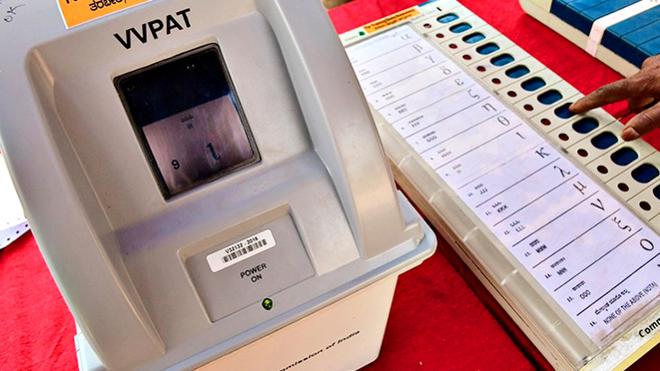24 Apr. 24: In a significant development in the ongoing Electronic Voting Machines (EVMs) and Voter Verifiable Paper Audit Trail (VVPAT) case, the Supreme Court of India posed five crucial questions to the Election Commission. The queries revolve around the technical aspects and transparency of the electoral process, with the court seeking clarifications on key operational details.
The Bench of Justices Sanjiv Khanna and Dipankar Datta directed pointed questions at the Election Commission, challenging certain practices related to EVMs and VVPAT. Justice Khanna, addressing the court, highlighted uncertainties regarding the installation and programmability of microcontrollers within the voting systems. Additionally, the court sought information on the type of microcontrollers used and the availability of Symbol Loading Units.
A specific concern raised by the court was the discrepancy in the storage duration of EVMs, contrasting the Election Commission’s submission of 30 days with the statutory provision of 45 days under Section 81 of the Representation of People Act. Furthermore, the court probed whether the three integral components of the EVMs – ballot unit, control unit, and VVPAT – are securely stored together.
The case, which was reserved for judgment on April 18, saw these questions arise unexpectedly during the final stages of the proceedings. The petitioners, advocating for increased transparency in the electoral process, had originally sought a comprehensive 100% cross-verification of EVM and VVPAT counts, underscoring the right of voters to a transparent electoral system.
Notably, the Election Commission had earlier defended the integrity of EVMs, asserting their tamper-proof nature. However, the petitioners contended that the existing system lacked voter confirmation and transparency, especially concerning VVPAT slips, which are briefly displayed to voters post-vote.
The court’s intervention underscores the critical importance of electoral transparency and the need to address public concerns regarding the accuracy and integrity of voting systems. The Election Commission is expected to respond to these questions during the next hearing, scheduled for later in the day.
The outcome of this case could potentially influence electoral practices and uphold the fundamental rights of voters in the world’s largest democracy. The Supreme Court’s focus on ensuring the fairness and reliability of the electoral process reflects a broader commitment to safeguarding democratic principles.




